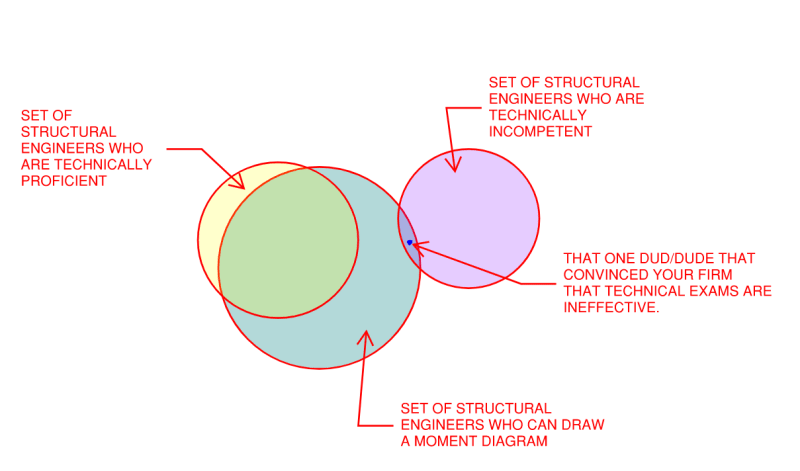This reply may have a tone problem, I mean, it PROBABLY has a tone problem. Sorry.
If I weren't a sole proprietor, (which I am), I'd be more interested in finding someone with the right attitude than somebody with excellent technical skills who had no interest in learning. A compelling transcript and high grades may not translate into what you want.
Knowledge I can transfer, but the student must be willing to learn. It's not a popularity contest, don't take it that way, and someone who's obsequious isn't going to fly either. I know nobody wants to "waste time" holding somebody's hand through the process, but I'm going to point at the roughly forty year cycle of significant bridge design failures.... there's a reason for this. We are expected to be in responsible charge and provide direct supervision (to use the buzzwords from the statutes), think of it like a car repair shop, once they know how to fill the tires, check the fluids, they learn more skilled tasks, oil changes, and until then, you have to provide what they need and clear direction how to proceed. Pass me the wrench. Don't just plop someone in front of a computer with a set of half-done ill-advised architectural plans the architect hasn't even looked at yet, and let them run for forty hours before you check back.
Be upfront about salary and benefits. If you're too cheap, they won't apply and you'll figure it out. Nobody does this and it wastes YOUR time as well as theirs. Get rid of that Applicant Tracking System (I'm looking at you, larger corporations), they are garbage. Admit it. Move on. YOU want to see the resumes, not some HR trainee.
You can always go with the classic "tell me about a time you made a mistake and how you handled it." And I would approach it as a conversation, more than an interview. You are trying to learn about the candidate, but they want to know about who they might be working for. I had a guy at Arcadis once describe the workplace as "not a spa, not a sweatshop", I though that sounded about right.
It's not always about their personality, sometimes it's about your personality.
Any question you ask you should be able to answer if they ask it back. When was a time you made a mistake and how did you handle it? To me, (as a candidate) the two red flags that sent me fleeing was a) blaming me for being late (It was a two hour drive, no cell phones, and I got behind a tractor on the way to Fort Wayne), get a life. I called when there was a phone booth. b) the "manager" leading the department with zero technical background, a literal MBA. c) somewhere in an interview the guy conceded that "nobody really knew how the software worked, we just use it" (a manufacturer). That's a Microsoft answer, and it's not acceptable. I don't work that way. d) "We don't normally hire EITs" (Why am I here, then? BYE. What happens if every company works that way?)
Do not do a second, third, fourth, or fifth round of interviews. If you can't make a decision after one interview, it's YOU. Do not do a "phone screen" where some HR flunky reads the job description says how wonderful the company is and how it's all about "work-life balance" and seven other trendy phrases, and asks you what kind of tree you'd be. Why do people do this?
There is also something extremely sus about meeting someone off-site for an interview. What are you hiding? That always sounds like somebody is going to get canned and you want a backup in place, so you don't let them meet the staff because you don't want the other guy to get suspicious.
Regards,
Brian

